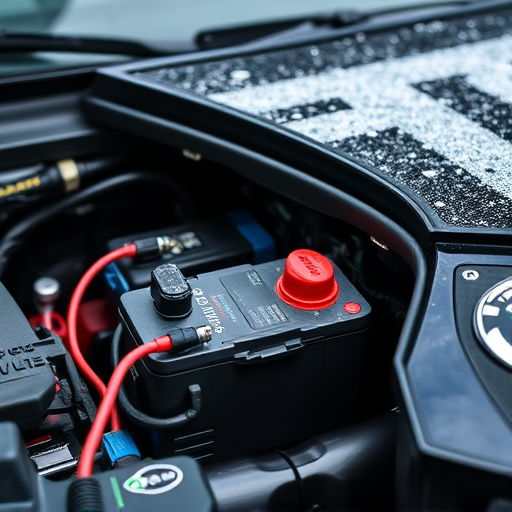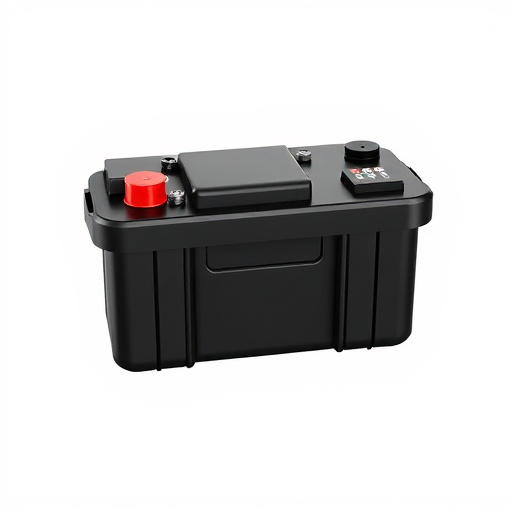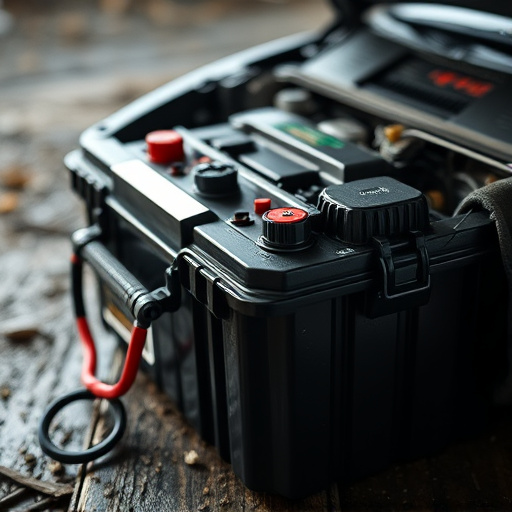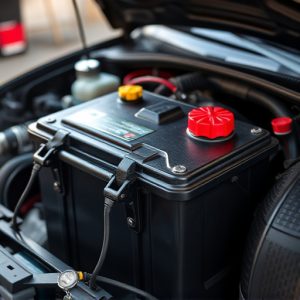Cold weather significantly impacts car battery performance, leading to premature failure. To prevent this, regularly test your battery using a multimeter for voltage and power delivery. Maintain optimal charging levels by ensuring alternator function and avoiding prolonged idle time in freezing temperatures. Promptly address warning signs like dim lights or slow engine cranking. Focus on proper insulation, regular inspection, and corrosion prevention to safeguard battery health. Proactively replace the car battery during milder seasons based on performance indicators, minimizing cold-related breakdowns.
Cold weather can significantly impact your car’s battery, leading to failure if not properly maintained. This article provides essential tips to prevent and extend your battery’s life during colder months. We’ll guide you through understanding the effects of cold on batteries, testing for performance issues, and ensuring optimal charging. Learn practical strategies to protect against freezing and know when it’s time for a replacement to keep your vehicle reliable in harsh conditions.
- Understanding Cold Weather's Impact on Car Batteries
- Regularly Test Your Battery for Performance and Health
- Maintaining Optimal Battery Charging Levels During Cold Months
- Protecting Your Battery from Freezing: Practical Tips
- Timing Battery Replacement for Maximum Efficiency in Cold Conditions
Understanding Cold Weather's Impact on Car Batteries

Cold weather can significantly impact your car’s battery performance and longevity, often leading to premature replacement. This is because cold temperatures affect the chemical reactions inside the battery, reducing its capacity to deliver power effectively. In extreme cases, cold weather can cause batteries to underperform or even fail entirely, leaving you stranded.
When temperatures drop, the chemical reactions that produce energy slow down, resulting in a decrease in voltage and current output. Additionally, cold air is denser, which can affect the battery’s ability to charge efficiently during the regenerative braking process. Over time, this can lead to sulfation on the battery plates, making it harder for the battery to hold a charge. Understanding these effects is crucial in implementing strategies to prevent early battery failure and potentially avoid the need for a costly replace car battery.
Regularly Test Your Battery for Performance and Health

Regularly testing your battery is a proactive step in preventing cold-related failure. It’s important to note that as temperatures drop, so does the performance of your car battery. A simple and regular check can reveal any signs of weakness or damage before it becomes critical. Look for a multimeter, a device that measures voltage, to test the battery’s health. This tool allows you to gauge the battery’s ability to hold and deliver power, ensuring it’s up to par for cold weather. By doing so, you’ll be aware if a replacement car battery is necessary before being stranded in the cold.
This practice not only prevents unexpected failures but also helps extend the lifespan of your battery. Remember, cold temperatures can cause batteries to underperform or even fail prematurely. Thus, regular testing can save you from unexpected issues and potentially costly repairs, especially during the winter months.
Maintaining Optimal Battery Charging Levels During Cold Months

In cold months, it’s crucial to maintain optimal battery charging levels to prevent early battery failure. One effective strategy is to regularly check and adjust your car’s charging system. Ensure the alternator is functioning correctly and that the battery is receiving adequate voltage throughout the day. Regular maintenance, including cleaning corrosion from terminals, can also improve power output.
Additionally, avoid letting your car sit idle in freezing temperatures for extended periods. Even if you’re not driving frequently, brief drives help keep the battery charged. If you notice dim lights or slower engine cranking, take these as warning signs and consider replacing your car battery before it’s too late. Remember, a well-maintained battery can significantly extend its lifespan and prevent costly repairs.
Protecting Your Battery from Freezing: Practical Tips

Freezing temperatures can significantly impact your car’s battery, causing it to underperform or fail altogether. To protect against this, it’s crucial to implement practical measures that prevent freezing and maintain optimal battery health. One effective strategy is to ensure proper insulation. Just like in a cold climate, keeping your car’s battery warm is essential for its longevity. Consider using battery insulation kits, which can be easily installed and provide an extra layer of protection against extreme cold. By minimizing direct contact with freezing air, you reduce the risk of crystallization on the battery’s surface that could disrupt its internal chemistry.
Additionally, regular checks and maintenance are vital. Inspect your car’s battery for any signs of corrosion or leaks during periodic washes or when the weather turns colder. Clean the battery terminals with a wire brush to ensure good conductivity. Also, keep the battery charged at an optimal level; undercharging can lead to sulfation on the plates, which is challenging to reverse. Regularly testing your battery’s voltage and ensuring it stays within the recommended range will help prevent unexpected failures, especially in cold environments where battery performance tends to deteriorate. Remember, a well-maintained battery stands a better chance of withstanding chilly conditions, ensuring you’re not left stranded during winter months or cold weather events.
Timing Battery Replacement for Maximum Efficiency in Cold Conditions

In cold conditions, it’s crucial to time your replace car battery strategically for maximum efficiency. Cold weather can temporarily reduce a battery’s performance, so replacing it before it fails completely is essential. Look out for signs like difficulty starting the engine, dim lighting, or slow accessory operation, which could indicate a declining battery health. By proactively replacing your car battery before these issues escalate, you ensure your vehicle starts reliably in cold temperatures.
For optimal results, consider replacing your car battery during the milder seasons, such as autumn or early winter. This allows for a more gradual adjustment to the colder climate and gives you time to acclimatize to any changes in performance. Regularly checking your battery’s condition throughout the year can also help you identify when it needs replacement, ensuring you’re prepared for cold weather challenges.
Cold weather can significantly impact your car’s battery health, making it crucial to implement preventive measures. Regular testing, maintaining optimal charging levels, and protecting against freezing are essential tips to ensure your battery functions optimally during cold months. By following these guidelines, you can extend the life of your battery and avoid unexpected failures, ultimately saving you from costly replacements. Remember, a well-maintained battery is key to keeping your vehicle running smoothly in any season, so consider these tips as a game-changer for your car’s longevity. When the time comes, don’t forget to replace your car battery to maintain top performance in cold conditions.
